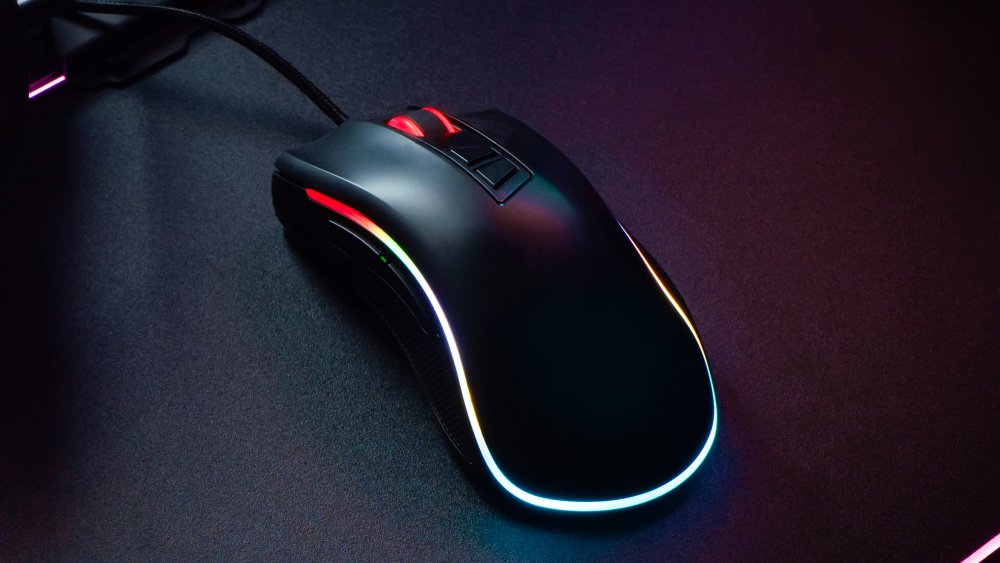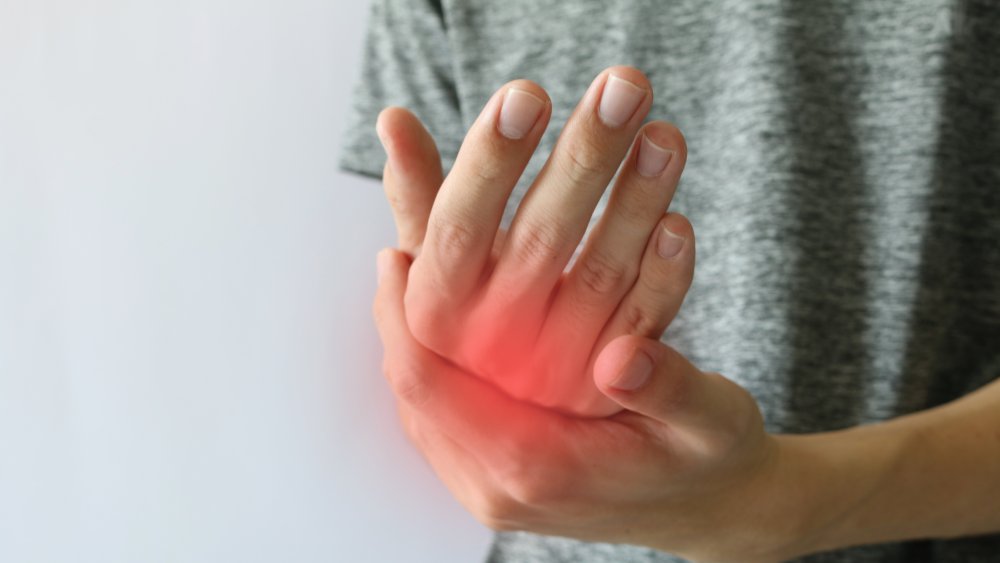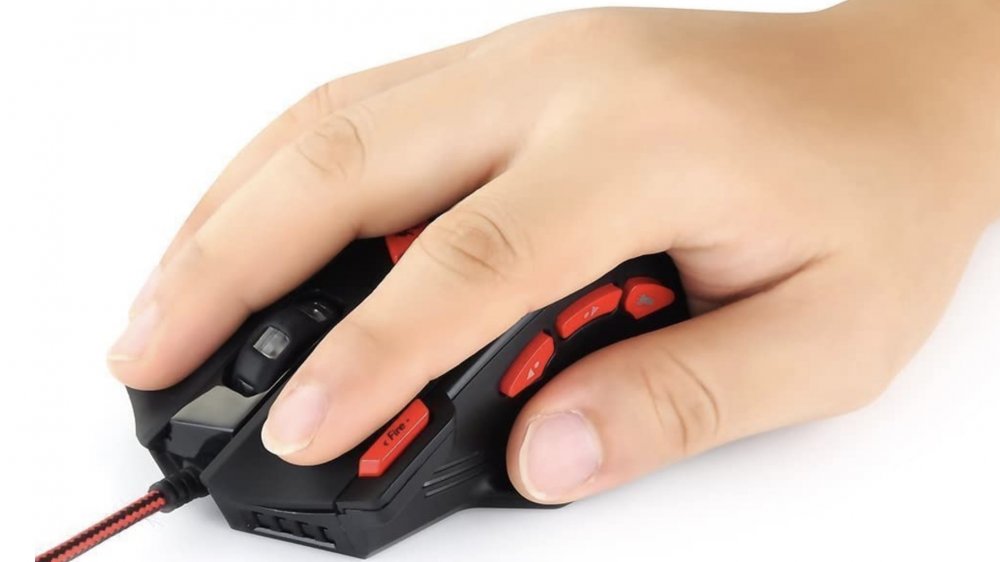When You Use A Gaming Mouse Every Day, This Is What Happens To Your Hands
We may receive a commission on purchases made from links.
A sophisticated, professional-style computer setup is necessary for those who spend a lot of time gaming. Such a setup might include a high-performance PC, a headset, a specially-designed monitor, and a good-quality webcam. It should also include a suitable gaming mouse.
A good gaming mouse can feel more responsive and be more performance-oriented and customizable than your average computer controller. The best gaming mice are designed to feature better quality and higher sensitivity to enhance play while ensuring a comfortable grip. However, one of the main advantages of a gaming mouse is its ergonomic design intended to reduce strain on the muscles you use constantly.
Gaming mice are generally more expensive, but they offer certain benefits for your wellness level and the type of gameplay you prefer. You're making the same actions over and over again, so you need to be careful of overuse injuries. So, what actually happens when you use a gaming mouse every day?
Carpal tunnel syndrome and other overuse conditions
When you play too long, your muscles may experience symptoms of overuse. For example, if you feel pain, numbness, and tingling in your hand, you may be suffering from carpal tunnel syndrome. It happens when one of the major nerves to the hand, your median nerve, has too much pressure placed upon it and swells up. This condition gets worse over time and can be influenced by a number of other factors, including sex, obesity, and your specific anatomy.
Another problem that may occur is bicipital tendinosis, known more commonly as "mouse shoulder" because it happens to PC players so often. This injury takes place in the biceps and is caused by misuse and imbalance, which disrupts the fiber orientation of the tendon in the proximal attachment of the muscle. It manifests in pain in your front shoulder and the upper arm. If you move your arm forward, upward, or backward, you may feel it more.
Other overuse injuries, also known as repetitive motion disorders, that gamers may experience include trigger finger (stenosing tenosynovitis) and De Quervain's tenosynovitis. Gamers may be more at risk for these types of injuries because of the amount of time they spend at their computers.
According to the Mayo Clinic, one of the ways you can prevent problems is to "Change out your gaming mouse." The medical organization suggests suggests a comfortable mouse that doesn't cause wrist strain.
What's your gaming mouse grip?
According to the folks at Razer, people tend to favor one of three mouse grip styles: palm grip, claw grip, and fingertip grip. Your personal style in this regard could be affecting whether or not you experience overuse injuries and determine which gaming mouse might be right for you.
If you're using the palm grip, you hold your mouse like it's a doorknob — your palm and fingers touch the mouse as much as possible. This grip makes your hand movements slower because of the weight on your mouse, but more accurate. If you're using a claw grip, your hand is more arched and your fingertips are mostly in contact with the mouse, but a small part of your palm touches it as well. This grip gives gamers more flexibility and requires a smaller mouse profile. The tip grip happens when all contact between your hand and the mouse takes place at the tips of your fingers. This is an even more agile style and requires a small, flat mouse.
"Gamers have always naturally been gripping mice in variations of these three distinct grip styles," Hilmar Hahn, associate product marketing director for Razer, told VICE. "[Pain is] mostly a result of using mice that are too big, too small, or too heavy for your hand size and strength over prolonged periods of time." He also notes that an awkward grip and buttons that need too much pressure to operate may factor in.
Comfort is key when it comes to getting the right gaming mouse
Whether or not a gaming mouse enhances in-game performance in a quantifiable way is still being debated, but the way a gaming mouse affects your body is quite dependent on whether or not you've purchased one that's comfortable for you. You need to find the right mouse for your grip style and the size of your hand — one that is ergonomically designed to work for extended periods of time. The most expensive mouse may not work the best for you if it's not designed for your specific needs.
A mouse that doesn't give you discomfort even though you use it over long periods of time will do more to combat overuse injuries than the mouse with the highest dots per inch (DPI). Don't fall for marketing that touts the benefits of all the optional bells and whistles, but do look at the ways manufacturers like Logitech have made their controllers ergonomic to reduce muscle strain and improve posture. If you can, test out the mouse beforehand to see if it'll work for you.
With research before you buy and some regular preventative care — such as taking breaks, watching your posture, and doing conditioning exercises — an everyday gaming habit will not adversely affect your body.




